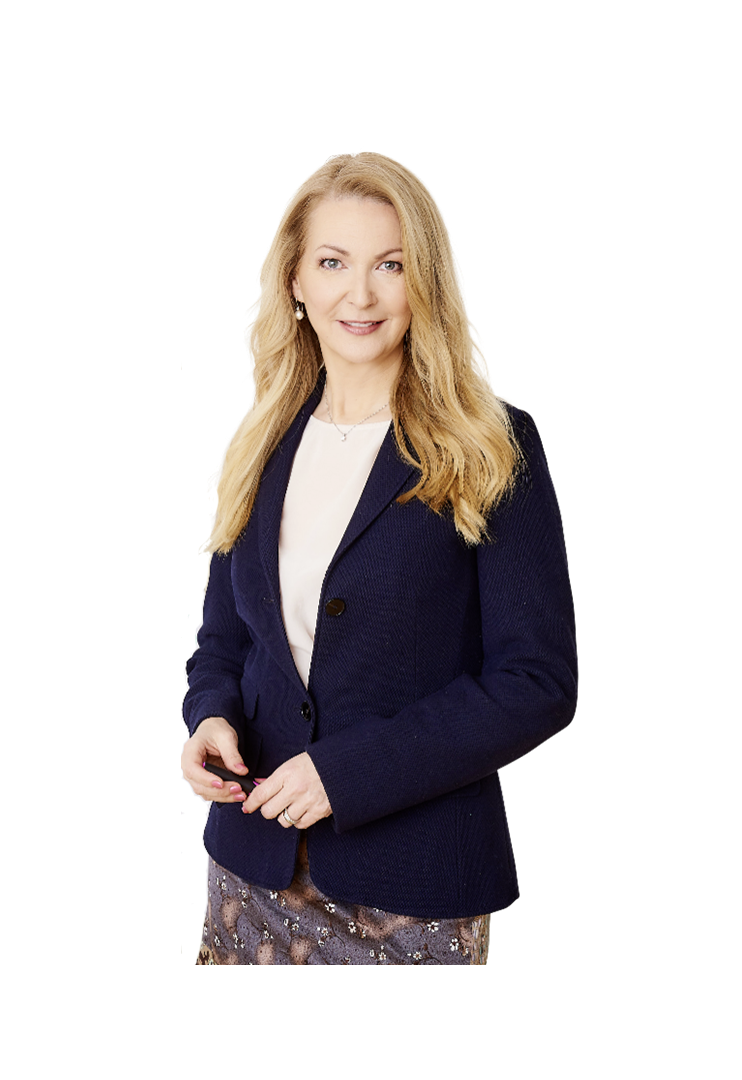
Trainings,
Seminars & Coaching
Trainings,
Seminars & Coaching

Key notes,
Presentations & leadership events

New Work, leading hybrid teams &
future skills
New Work, leading hybrid teams &
future skills

Mindfulness &
Neuroscience

Trainings, Seminars & Coaching
Trainings, Seminars & Coaching
With my practical and scientifically based approach I support the development of people in organizations in a
professional and sustainable way. I bring with me many years of leadership and management experience. Based on
this knowledge I accompany and train executives, employees and teams in organizations.
My diverse experience in professional and private life support an open and goal-oriented work. Frequent topics
in trainings or coachings include questions of agile leadership, establishing new teams, relationship and
conflict issues in teams, taking on new tasks or leadership responsibility, change processes as well as
questions of self-reflection and personal development.
You would also like to work individually on specific topics or practice individual aspects in a quiet
one-on-one setting? Your self-competence, cooperation competence and communication skills can be enhanced in
the course of coaching. You practice your ability to self-regulate, which protects you from unconscious
reactions and expands your scope of action.
My business coaching is resource-driven and solution-oriented. I approach your specific concerns in an
empathic and unconditionally appreciative way. With my support, you work out your burning questions. My
attitude is open, non-judgmental and reflective. I accompany you from talking into felt experience, from doing
into experiencing, from the past into the present and from everyday consciousness into self-exploration.
Key Notes and Lectures
Key Notes and Lectures
With many years of practical experience and scientifically backed up, I design your
company event, lectures or panel discussions. Each presentation is tailored to your target group, provides
motivating impulses and inspires reflection on the topics presented.
New Work, Hybrid Leadership and Future Skills
New Work, Hybrid Leadership and Future Skills
With increasing digitalization and accelerated by the pandemic, the framework conditions of our work have changed
sustainibly. "New Work" circumscribes these changed framework conditions.
Questions of leading hybrid teams, necessary competencies of today's leader, dealing with change, the transition
from presence-oriented to results-oriented work and trust leadership, questions of resilience and staff retention,
different needs of Millennials and Generation Z, agile working and self-responsibility, the desire for meaning in
work are just a few examples of the challenges companies are facing today.
Strengthening trust as the basis for autonomous action, consolidating leadership and self-leadership, living
flexibility and strengthening personal encounters are the contents of this complex of topics.
How about you?
Scroll through the questions and think about where you would answer with
"yes".
Then mark these by clicking on them and add them up.
My experience
Lorem ipsum dolor sit amet, consectetur adipiscing elit. Suspendisse varius enim in
eros elementum tristique. Duis cursus, mi quis viverra ornare, eros dolor interdum nulla.
Webflow
Graphic Designer
April 2014 — Mar 2015
Webflow
Web Designer
Apr 2015 — Mar 2016
Webflow
Visual Developer
Jun 2016 — Jul 2017
Webflow
Dictator
Aug 2017 — forever
You answered "yes" to several
questions?
I will show you how to regain your ability to focus and concentrate. With my help, you can
recuperate awareness of your day, take control of your life, and find time to enjoy the good things in life. With
mindfulness-based training, you will gain the ability to self-regulate, which will keep you from unconscious
reactions and expand your scope of action. Your mindfulness practice works. According to numerous neuroscience
studies, with regular mindfulness practice you can develop beneficial qualities, stimulate your brain to
neurogenesis, and reach your full potential.
"Beyond right and wrong lies a place.
That's where we meet.."
RUMI, persischer Dichter
Mindfulness and Neuroscience
Mindfulness and
Neuroscience
My mindfulness training and coaching covers a wide range from the shaping of a mindfulness-based workday to
corporate mindfulness. Exercises are incorporated which you can practice at your desk at any time to help you
achieve inner calm, strength, and focus.
Research shows that cognitive and social skills can be trained with mindfulness, allowing you to act more
flexibly and resiliently, reduce social stress, and promote altruism and cooperation when mindfulness exercises
are practiced over a period of a few weeks.
You will learn how to use slowness and body orientation to better access the background of automatic behavior
patterns and how mindfulness can be helpful for a more effective self-regulation.
I'll show you how to integrate these practices into your daily life with ease and joy, and how you can better
keep up with rapid change mentally and personally in the long run. Likewise, with mindfulness practice, you can
learn mechanisms for coping with the stressors of the home office, such as depression, stress, loneliness, and
anxiety, which are particularly on the rise due to Covid-19 pandemic, and thereby mitigate the effects.
Your mindfulness practice works. According to numerous neuroscience studies, with regular mindfulness practice,
you can develop beneficial qualities, stimulate your brain to neurogenesis, and reach your full potential.
WHAT IS MINDFULNESS?
For the business-related approach, I work with the
definition, mindfulness is a "conscious, non-judgmental presence". What do my thoughts, words, and behaviors
trigger in my brain and body? How can I work more focused and switch off more easily with a mindful
mindset?
If you want to know more:
"Mindfulness is being attentive to what is happening right
now in this moment in the mind, body, and external environment with an attitude of curiosity and
kindness."
(Mindful Nation UK Report, October 2015), to name
just one of the many definitions. Practicing mindfulness means meditating regularly and/or performing
mindfulness exercises integrated into daily routines. Mindfulness is a key to understanding complex
interrelationships of external experience, internal response, and interpretation. Mindfulness is neither a
relaxation technique, nor a religion, nor a miracle cure.
Scientific studies prove that mindfulness and "mindful leadership" are able to make a positive contribution
in dealing with emotions and emotion regulation as well as in strengthening qualities such as acceptance or
the ability to change. Mindful leaders are more flexible, resilient, and able to adapt more quickly to
change. With regular mindfulness practice, practitioners can develop beneficial traits, stimulate their
brain to neurogenesis, and strengthen their health. Corporations such as Google, Bosch, SAP, Microsoft, BMW
as well as the European Commission or the British Parliament see mindfulness training as part of their
employee development programs.
EFFECT OF MINDFULNESS
What muscle training does for the body, mindfulness training does for the brain! Every year, well over 1,000
scientific studies show the measurable positive effects, which manifests itself in such things as:
- Increased attention, strengthened focus (Goleman & Davidson, 2017)
- A more powerful working memory (ibid.)
- Strengthened ability to change (Hölzel, 2015)
- Greater resistance to stress (Goleman, 2017)
- Strengthening mental health (Zollars et al., 2019)
- Strengthening the ability to cope with problems (Vibe et al., 2018)
- Strengthening self-control (Leyland et al., 2019)
- Releasing anxiety and tension to the point of depression (Hofmann & Gomez, 2017)
- Strengthening acceptance of given facts (Lindsay & Creswell, 2019)
Empowered leaders and motivated and satisfied employees are contagious! Resilient teams, lower turnover, less
conflict, and higher levels of team innovation are just some of the accompanying effects of mindfulness-based
training.
Curious?
"It is not the senses which deceive, but the judgment."
Johann Wolfgang von Goethe
